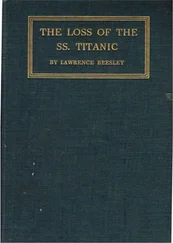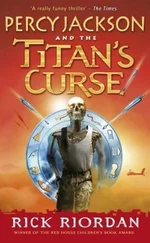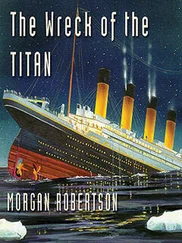Theodore Dreiser - The Titan
Здесь есть возможность читать онлайн «Theodore Dreiser - The Titan» весь текст электронной книги совершенно бесплатно (целиком полную версию без сокращений). В некоторых случаях можно слушать аудио, скачать через торрент в формате fb2 и присутствует краткое содержание. Жанр: Классическая проза, на английском языке. Описание произведения, (предисловие) а так же отзывы посетителей доступны на портале библиотеки ЛибКат.
- Название:The Titan
- Автор:
- Жанр:
- Год:неизвестен
- ISBN:нет данных
- Рейтинг книги:5 / 5. Голосов: 1
-
Избранное:Добавить в избранное
- Отзывы:
-
Ваша оценка:
- 100
- 1
- 2
- 3
- 4
- 5
The Titan: краткое содержание, описание и аннотация
Предлагаем к чтению аннотацию, описание, краткое содержание или предисловие (зависит от того, что написал сам автор книги «The Titan»). Если вы не нашли необходимую информацию о книге — напишите в комментариях, мы постараемся отыскать её.
The Titan — читать онлайн бесплатно полную книгу (весь текст) целиком
Ниже представлен текст книги, разбитый по страницам. Система сохранения места последней прочитанной страницы, позволяет с удобством читать онлайн бесплатно книгу «The Titan», без необходимости каждый раз заново искать на чём Вы остановились. Поставьте закладку, и сможете в любой момент перейти на страницу, на которой закончили чтение.
Интервал:
Закладка:
Meanwhile be it admitted that the local elements in finance which had brought about this terrific onslaught on Cowperwood were not a little disturbed as to the eventual character of the child of their own creation. Here at last was a public opinion definitely inimical to Cowperwood; but here also were they themselves, tremendous profit-holders, with a desire for just such favors as Cowperwood himself had exacted, deliberately setting out to kill the goose that could lay the golden egg. Men such as Haeckelheimer, Gotloeb, Fishel, tremendous capitalists in the East and foremost in the directorates of huge transcontinental lines, international banking-houses, and the like, were amazed that the newspapers and the anti-Cowperwood element should have gone so far in Chicago. Had they no respect for capital? Did they not know that long-time franchises were practically the basis of all modern capitalistic prosperity? Such theories as were now being advocated here would spread to other cities unless checked. America might readily become anti-capitalistic—socialistic. Public ownership might appear as a workable theory—and then what?
“Those men out there are very foolish,” observed Mr. Haeckelheimer at one time to Mr. Fishel, of Fishel, Stone & Symons. “I can’t see that Mr. Cowperwood is different from any other organizer of his day. He seems to me perfectly sound and able. All his companies pay. There are no better investments than the North and West Chicago railways. It would be advisable, in my judgment, that all the lines out there should be consolidated and be put in his charge. He would make money for the stockholders. He seems to know how to run street-railways.”
“You know,” replied Mr. Fishel, as smug and white as Mr. Haeckelheimer, and in thorough sympathy with his point of view, “I have been thinking of something like that myself. All this quarreling should be hushed up. It’s very bad for business—very. Once they get that public-ownership nonsense started, it will be hard to stop. There has been too much of it already.”
Mr. Fishel was stout and round like Mr. Haeckelheimer, but much smaller. He was little more than a walking mathematical formula. In his cranium were financial theorems and syllogisms of the second, third, and fourth power only.
And now behold a new trend of affairs. Mr. Timothy Arneel, attacked by pneumonia, dies and leaves his holdings in Chicago City to his eldest son, Edward Arneel. Mr. Fishel and Mr. Haeckelheimer, through agents and then direct, approach Mr. Merrill in behalf of Cowperwood. There is much talk of profits—how much more profitable has been the Cowperwood regime over street-railway lines than that of Mr. Schryhart. Mr. Fishel is interested in allaying socialistic excitement. So, by this time, is Mr. Merrill. Directly hereafter Mr. Haeckelheimer approaches Mr. Edward Arneel, who is not nearly so forceful as his father, though he would like to be so. He, strange to relate, has come rather to admire Cowperwood and sees no advantage in a policy that can only tend to municipalize local lines. Mr. Merrill, for Mr. Fishel, approaches Mr. Hand. “Never! never! never!” says Hand. Mr. Haeckelheimer approaches Mr. Hand. “Never! never! never! To the devil with Mr. Cowperwood!” But as a final emissary for Mr. Haeckelheimer and Mr. Fishel there now appears Mr. Morgan Frankhauser, the partner of Mr. Hand in a seven-million-dollar traction scheme in Minneapolis and St. Paul. Why will Mr. Hand be so persistent? Why pursue a scheme of revenge which only stirs up the masses and makes municipal ownership a valid political idea, thus disturbing capital elsewhere? Why not trade his Chicago holdings to him, Frankhauser, for Pittsburg traction stock—share and share alike—and then fight Cowperwood all he pleases on the outside?
Mr. Hand, puzzled, astounded, scratching his round head, slaps a heavy hand on his desk. “Never!” he exclaims. “Never, by God—as long as I am alive and in Chicago!” And then he yields. Life does shifty things, he is forced to reflect in a most puzzled way. Never would he have believed it! “Schryhart,” he declared to Frankhauser, “will never come in. He will die first. Poor old Timothy—if he were alive—he wouldn’t either.”
“Leave Mr. Schryhart out of it, for Heaven’s sake,” pleaded Mr. Frankhauser, a genial American German. “Haven’t I troubles enough?”
Mr. Schryhart is enraged. Never! never! never! He will sell out first—but he is in a minority, and Mr. Frankhauser, for Mr. Fishel or Mr. Haeckelheimer, will gladly take his holdings.
Now behold in the autumn of 1897 all rival Chicago street-railway lines brought to Mr. Cowperwood on a platter, as it were—a golden platter.
“Ve haff it fixed,” confidentially declared Mr. Gotloeb to Mr. Cowperwood, over an excellent dinner in the sacred precincts of the Metropolitan Club in New York. Time, 8.30 P.M. Wine—sparkling burgundy. “A telegram come shusst to-day from Frankhauser. A nice man dot. You shouldt meet him sometime. Hant—he sells out his stock to Frankhauser. Merrill unt Edward Arneel vork vit us. Ve hantle efferyt’ing for dem. Mr. Fishel vill haff his friends pick up all de local shares he can, unt mit dees tree ve control de board. Schryhart iss out. He sess he vill resign. Very goot. I don’t subbose dot vill make you veep any. It all hintges now on vether you can get dot fifty-year-franchise ordinance troo de city council or not. Haeckelheimer sess he prefers you to all utters to run t’ings. He vill leef everytink positifely in your hands. Frankhauser sess de same. Vot Haeckelheimer sess he doess. Now dere you are. It’s up to you. I vish you much choy. It is no small chop you haff, beating de newspapers, unt you still haff Hant unt Schryhart against you. Mr. Haeckelheimer askt me to pay his complimends to you unt to say vill you dine vit him next veek, or may he dine vit you—vicheffer iss most conveniend. So.”
In the mayor’s chair of Chicago at this time sat a man named Walden H. Lucas. Aged thirty-eight, he was politically ambitious. He had the elements of popularity—the knack or luck of fixing public attention. A fine, upstanding, healthy young buck he was, subtle, vigorous, a cool, direct, practical thinker and speaker, an eager enigmatic dreamer of great political honors to come, anxious to play his cards just right, to make friends, to be the pride of the righteous, and yet the not too uncompromising foe of the wicked. In short, a youthful, hopeful Western Machiavelli, and one who could, if he chose, serve the cause of the anti-Cowperwood struggle exceedingly well indeed.
Cowperwood, disturbed, visits the mayor in his office.
“Mr. Lucas, what is it you personally want? What can I do for you? Is it future political preferment you are after?”
“Mr. Cowperwood, there isn’t anything you can do for me. You do not understand me, and I do not understand you. You cannot understand me because I am an honest man.”
“Ye gods!” replied Cowperwood. “This is certainly a case of self-esteem and great knowledge. Good afternoon.”
Shortly thereafter the mayor was approached by one Mr. Carker, who was the shrewd, cold, and yet magnetic leader of Democracy in the state of New York. Said Carker:
“You see, Mr. Lucas, the great money houses of the East are interested in this local contest here in Chicago. For example, Haeckelheimer, Gotloeb & Co. would like to see a consolidation of all the lines on a basis that will make them an attractive investment for buyers generally and will at the same time be fair and right to the city. A twenty-year contract is much too short a term in their eyes. Fifty is the least they could comfortably contemplate, and they would prefer a hundred. It is little enough for so great an outlay. The policy now being pursued here can lead only to the public ownership of public utilities, and that is something which the national Democratic party at large can certainly not afford to advocate at present. It would antagonize the money element from coast to coast. Any man whose political record was definitely identified with such a movement would have no possible chance at even a state nomination, let alone a national one. He could never be elected. I make myself clear, do I not?”
Читать дальшеИнтервал:
Закладка:
Похожие книги на «The Titan»
Представляем Вашему вниманию похожие книги на «The Titan» списком для выбора. Мы отобрали схожую по названию и смыслу литературу в надежде предоставить читателям больше вариантов отыскать новые, интересные, ещё непрочитанные произведения.
Обсуждение, отзывы о книге «The Titan» и просто собственные мнения читателей. Оставьте ваши комментарии, напишите, что Вы думаете о произведении, его смысле или главных героях. Укажите что конкретно понравилось, а что нет, и почему Вы так считаете.










